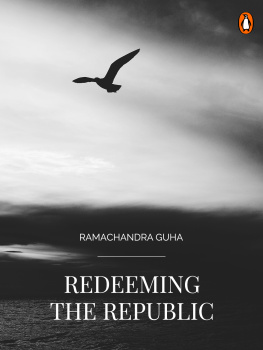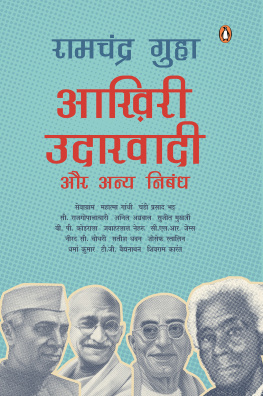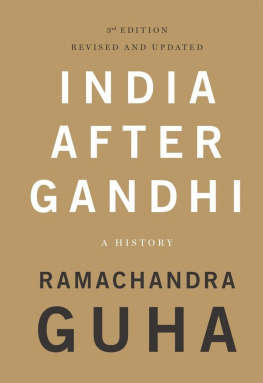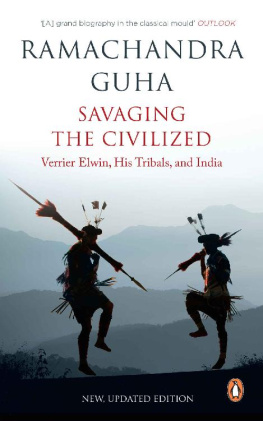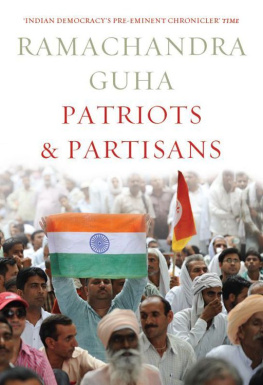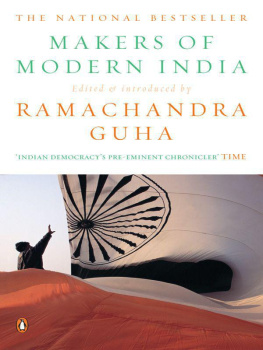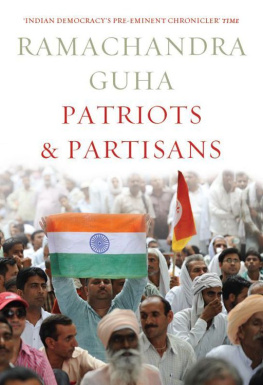ALLEN LANE
Published by the Penguin Group
Penguin Books India Pvt. Ltd, 11 Community Centre, Panchsheel Park, New Delhi 110 017, India
Penguin Group (USA) Inc., 375 Hudson Street, New York, New York 10014, USA
Penguin Group (Canada), 90 Eglinton Avenue East, Suite 700, Toronto, Ontario, M4P 2Y3, Canada (a division of Pearson Penguin Canada Inc.)
Penguin Books Ltd, 80 Strand, London WC2R 0RL, England
Penguin Ireland, 25 St Stephens Green, Dublin 2, Ireland (a division of Penguin Books Ltd)
Penguin Group (Australia), 707 Collins Street, Melbourne, Victoria 3008, Australia (a division of Pearson Australia Group Pty Ltd)
Penguin Group (NZ), 67 Apollo Drive, Rosedale, Auckland 0632, New Zealand (a division of Pearson New Zealand Ltd)
Penguin Books (South Africa) (Pty) Ltd, Block D, Rosebank Office Park, 181 Jan Smuts Avenue, Parktown North, Johannesburg 2193, South Africa
Penguin Books Ltd, Registered Offices: 80 Strand, London WC2R 0RL, England
First published in 'Patriots and Partisans' by Penguin Books India 2012
Copyright Ramachandra Guha 2012
All rights reserved
www.penguinbooksindia.com
The views and opinions expressed in this book are the authors own and the facts are as reported by him which have been verified to the extent possible, and the publishers are not in any way liable for the same.
ISBN: 978-06-7008-386-2
This digital edition of this story/essay published in 2013.
e-ISBN: 978-93-5118-307-5
Redeeming the Republic
~
I
Let me begin with two epiphanies.
A few years ago, I visited a book fair held on the seafront in Kochi. The local publishers were represented, as were Indian and foreign firms. In between the stall of Oxford University Press and a shop stocking the works in Malayalam translation of Marx, Engels and Lenin, I came across a man selling, of all things, pickles from Bikaner. He had placed his wares in large open buckets, one containing aam ka murabba, another shalgam ka achar. I asked the young man how he had come from a northern desert to participate in a book fair in this southern port. Maine suna ki Keral mein mela lag raha tha, he answered, aur maine socha ki wahan ek dukan khol doon. (I heard that there was some kind of fair on in Kerala, so I thought, why dont I bid for a stall there?) Thus spoke a pickle man in a salad-bowl nation, adding his charmingly nave logic to an apparently illogical country.
Some months after this encounter, I was travelling by car from Patiala to Amritsar. It was a hot day, and the countryside was monotonous. I fell asleep, and woke when the car slowed down. We were now in the market town of Khanna. I scanned the buildings and their signs. One, particularly, caught my attention: it read, Indian Bank, Khanna Branch, Head Office, Rajaji Salai, Chennai. I was charmed and uplifted, sentiments that (especially for the young) perhaps need explaining. For, Rajaji was C. Rajagopalachari, the scholarstatesman who had been governor-general of India, chief minister of Madras State, founder of the free-market Swatantra Party, and author of bestselling versions of the Ramayana and Mahabharata. In his person he embodied all Punjabi stereotypes about the Madrasi; he was slight, wore thick glasses, had never played a single sport or consumed an alcoholic beverage, and was vegetarian. Yet here was evidence of his enduring legacy in the Punjab, whereas that sign informed methere were many whisky-guzzling, chicken-eating Sikh farmers banking their savings in an institution headquartered in Chennai on a road named after a dhoti-wearing, rasam-drinking, austere Tamil scholar.
The writer Wallace Stegner once remarked that the tracing of ideas is a guessing game. We cant tell who first had an ideawe can only tell who first had it influentially, who formulated it in some form, poem or equation or picture, that others could stumble upon with the shock of recognition. So it is with the idea of India. Rabindranath Tagore used the phrase in a letter to a friend in 1921, writing that the idea of India is against the intense consciousness of the separateness of ones own people from others, which inevitably leads to ceaseless conflicts. There may have been others who used the phrase before him. But it was only in 1997, when Sunil Khilnani used it as the title of his wonderful book, that his fellow citizens stumbled with a shock of recognition at what the idea of India represented.
As citizens, we ubiquitously use a humdrum manifestation of the miracle of Indianamely, our currency notes, which have a portrait of Gandhi on one side and the national Parliament on the other, and its denomination written in seventeen languages, indeed seventeen different scripts, each encoding a distinct, sophisticated, ancient and proud literary culture. Since rupee notes are an artefact of everyday life, we do not see or sense their significance. However, in its own way our paper currency is as marvellous and strange as the Bikaneri achar-vendor in Kochi or the signboard of the southern bank in the Punjab.
II
The plural, inclusive, idea of India has three enemies. The best known is the notion of a Hindu Rashtra, as represented in an erratic fashion by the Bharatiya Janata Party (BJP) and in a more resolute (not to say more bigoted) manner by the Rashtriya Swayamsevak Sangh, the Vishwa Hindu Parishad, the Bajrang Dal, and other associated organizations. When Khilnani published his book in 1997, Hindutva appeared to be the major challenge to the idea of India. To the theoretically untidy, improvising, pluralist approach of Gandhi and Nehru, he wrote, the Sangh Parivar offered the alternative of a culturally and ethnically cleaned-up homogeneous community with a singular Indian citizenship, defended by a state that had both God and nuclear warheads on its side.
Living in north India between 1988 and 1994, I experienced this challenge at first- and second handby seeing my Muslim friends board trains under assumed Hindu names, by visiting Bhagalpur after the riots provoked by Lal Krishna Advanis rath yatra, by witnessing a more general polarizing of public opinion on religious lines. The poisonous residues of those years carried on well into the next decade, as illustrated by the pogrom against Muslims in Gujarat in 2002.
Shortly after the Gujarat riots, I was driving to the Mumbai airport from the south of the city, when I noticed the tricolour hanging out of every home on Muhammad Ali Road. As I proceeded northwards, beyond Parel into Dadar and Shivaji Park, the flags were not visible any more. The contrast puzzled me, till I reached the airport and saw a live telecast of an India-Pakistan cricket match. It remains one of the saddest memories of my lifethe memory of how, intimidated by decades of harassment and violence at the hands of Hindutva bigots, so many of my fellow citizens had to shame themselves into a public display of patriotism solely on account of their faith.
One reason that Hindutva has been so successful is that it speaks in different voices. Arun Jaitley can be trotted out to calm the liberals; Narendra Modi to appeal to the hardliners. The BJP can distance itself from the RSS when it suits, but at other times can claim to be tied by an umbilical cord to it. The RSS in turn can opportunistically own or disown the trishul-waving goondas of the Vishwa Hindu Parishad and the Bajrang Dal.

